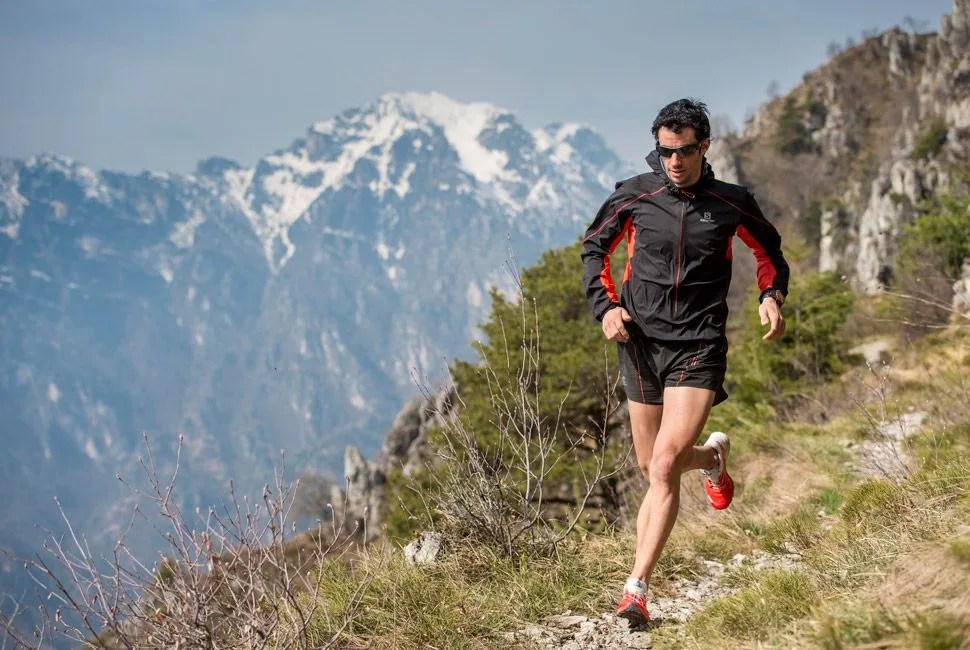Kilian Jornet is, simply put, a force of nature. A world-class runner and ski mountaineer, he moves through mountains with the surefootedness of a mountain goat, the easygoing endurance of an antelope on the veld. On a typical day, he’ll run for hours eating nothing more than wild berries and slaking his thirst in glacial streams. During multi-day races, he’ll curl up beside the trail and take “micro siestas” on his way to winning them.
One of the world’s leading endurance athletes, Jornet dominates the competition at altitude. His VO2 max, the rate at which he consumes oxygen, has been measured at 89.5, a full five points higher than Lance Armstrong’s at his peak. He’s won dozens of footraces that traverse as many as 100 miles of mountain terrain, and has seven world championships (including 2014) in Skyrunning.
In 2012, having already won most of his races of interest at the tender age of 24, Jornet embarked upon an ambitious and daring project that would challenge him in exciting new ways. His “Summits of My Life” project is a four-year effort to set speed records climbing and descending some of the world’s best-known peaks, from Mont Blanc to Mount Everest. He’s already set records on Mt. Blanc, the Matterhorn and Denali (this June he did it in 11 hours and 40 minutes, shattering the previous record by an incredible 5 hours and 6 minutes). Next up is South America’s 22,837-foot Aconcagua, followed by Elbrus and, finally, Everest.
Jornet grew up in the Spanish Pyrenees at 6,500 feet, where his athletic parents had him skiing before he could walk and later brought him on days-long hikes into the mountains. All the while, they instilled in him a deep respect for the landscape, and today it’s where he feels most at home. In fact, observers swear he draws his strength and endurance directly from the wilderness, as though the scent of alpine wildflowers and the feel of the rock underfoot are what fuel him. It’s said that he can’t stand cities — with all of their artifice and bright, buzzing confusion — for more than a few hours at a time.
It’s funny, then, that the last time we encountered Jornet was in the glass-and-concrete heart of Midtown Manhattan. In town to accept a National Geographic Adventurer of the Year award, he was being whisked frantically from one event to the next when we met him at Le Maraís, an unremarkable French restaurant where he was eating his last meal before his long flight back to Chamonix, France: roasted salmon filet, ratatouille and chive oil. Over lunch with Jornet, we discussed mountains, his speed climbing project, and the nature of risk.
MORE GP INTERVIEWS: Chris Lieto, Ironman | Parker Liautaud, Arctic Explorer | Michael Wardian, Distance Runner
Q. What’s one thing every man should know?
A. Every man should know that he really doesn’t know much at all, and have the desire to learn.
